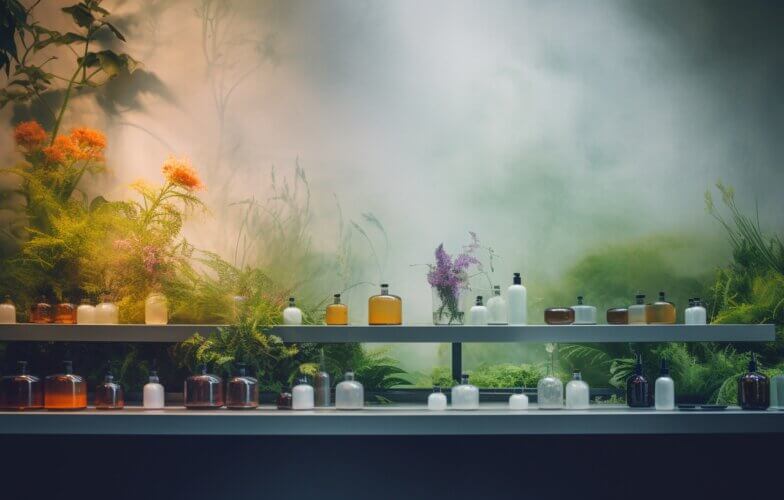
Intoxicating perfumes 2.0: Gourmand and Fruity Notes to Assert Your Identity
DecodingsIn recent years, the perfume market has been dominated by slightly artificial gourmand and candy-sweet scents (Lancôme’s La Vie est Belle, Dior’s Poison and Mugler’s Angel). Today we’re pushing gourmand fragrances even further (but this time with natural fruit extracts) because our noses are used to strong smells and also based on a desire to assert our identities and stand out. Vincent Grégoire, Consumer Trends and Insights Director at NellyRodi, explains this new phase of delicious olfactory indulgence.
Making way for fruity flavors, boldness and sensuality
After the disturbances caused by the pandemic – when our senses were sorely tested – now there’s a real need to reconnect with hypersensuality. The new gourmand perfumes satisfy this search for intense sensations. They are perfumes that make us, literally, feel alive. They awaken and stimulate our senses: smell, of course, but also touch and taste! These fragrances become carnal, with spicy notes like ginger (known for its aphrodisiac effects), and juicy, fruit liqueur bases such as peach or cherry (not such innocent fruits). Strangely enough, these bouquets recall bodies, sweat and sex. They have a very animal quality, making us want to kiss, lick and nibble necks.
Wearing these perfumes is also a way to achieve fragrance visibility and let the wearer take up space and refuse fitting into a mold. For some, it’s almost a political act, a way to provoke authority and established conventions. It expresses a desire to challenge conservative self-righteousness. It’s time to “shock the bourgeoisie” with squirts of fragrant mist.
This new generation of gourmand perfumes evokes a search for sensations so intense they seem dangerous, bringing the thrill of the forbidden. They flirt with drunkenness and guilty pleasures. Alcohol, coffee and tobacco are all actually addictive compositions that conjure up underground worlds, places where rules are made to be broken and perfume becomes a personal signature and a counterculture symbol.
These notes are true invitations for self-affirmation and the freedom of expression, and they erase ideas about masculinity and femininity, instead favoring compositions where gender doesn’t exist. It’s also important to note that these notes are not Occidental; we’re talking about vanilla, coffee, dragon fruit, pineapple, litchi, ginger and other substances. Naturally, all these intoxicating smells remind us of the faraway places we fantasize about. And it’s key to ask why they attract us. Some people will emphasize their colonial connotations, an idea worth exploring. Is there cultural appropriation in the perfume world?
Besides all these questions, we’re seeing a trend towards mono-perfumes that bypass sophisticated scent cocktails in preference for compositions that are simpler, easier to understand and especially more radical. In our “Life&Style 2026” trendbook, we present the Radicals profile for consumers who want to express something unique, stand out from the crowd, and, if possible, perturb. These perfumes truly fit this schema: adventurous consumers looking for disruptive perfumes that break traditional fragrance codes, considered too conventional and consensual.
Though Poison, Opium and Angel fulfill the desire to be noticed, their successors are more gourmand, fruity and especially less heady (we repeat, please do not pull out your old bottles). The intoxicating perfumes 2.0 represent a deeper longing for affirmation and empowerment. There’s a real revolution shaking up codes and causing a disturbance … and not just for noses.



